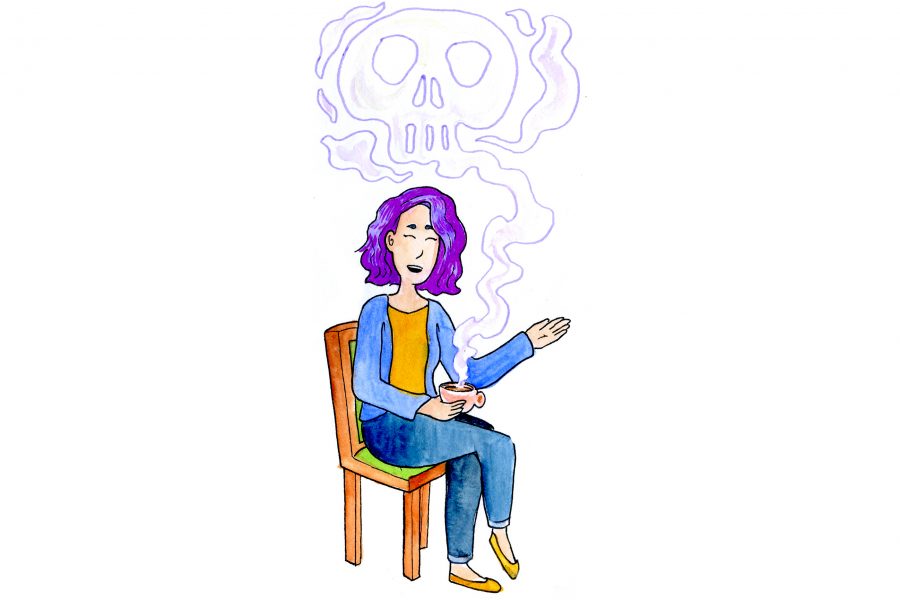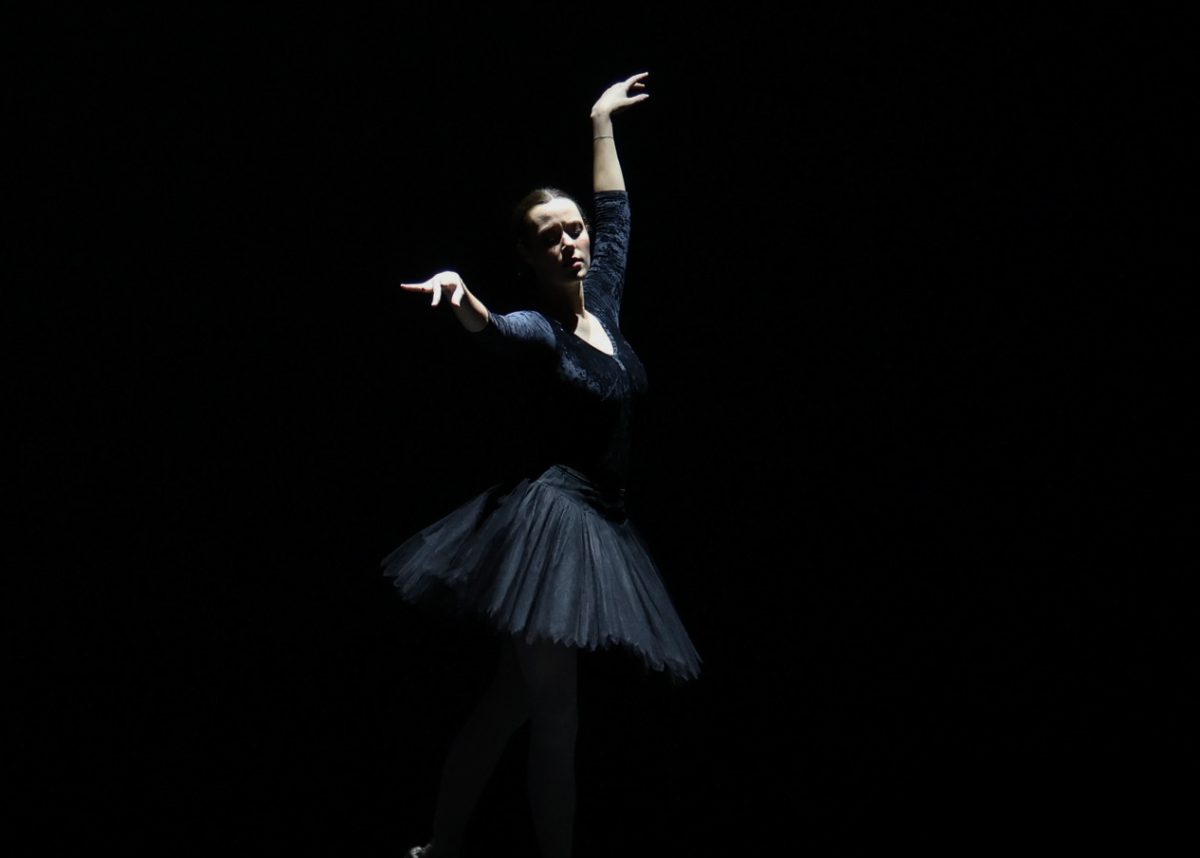The first Sunday of every month, a group of strangers gather at their local coffee shop, hang a warning and welcoming sign, and begin a two-hour-long conversation about everyone’s favorite tea-time subject — death.
The Death Cafe, originally invented by Jon Underwood, is a moderated meeting of strangers to discuss death and dying in a positive light. Since starting in September 2011 there have been 6,209 Death Cafes all over the world, four of which happen to be held in Austin.
Heather Black, a moderator for Death Cafe Austin North, explained that Death Cafes aren’t groups specifically designated for people who are facing death or have lost a loved one, but a free space for people to discuss death without fear of getting shut down or told they’re being too “morbid.” Among other things, the group discusses after death planning and the fears and questions they have about death and dying.
“We’re not a support group, we’re not a grief group,” Black said. “We are a group of people who talk about death.”
While anyone can start their own cafe, Black said they’re typically organized by “death professionals,” like hospice nurses, medical social workers, or morticians. Underwood, who has since passed away, created a Death Cafe website, now managed by his wife, that still serves as a guide for those looking to start their own Death Cafes.
Megan Mooney, who assisted in the creation of Austin’s first Death Cafe, said one of the most crucial tips of the guide is the necessity of food at the meetings.
“We always offer cake and coffee and any kind of refreshments,” Mooney said. “We believe that in order to talk about something so intimate as death then we need to have something life sustaining, like cake.”
Mooney said the group discussions often revolve around end of life planning and what happens after you die. She said she feels these meetings should be a safe space for people to discuss their fears and questions surrounding death. Often times, these death related conversations can’t be had with people outside of the group.
“People would come up to me and tell me they couldn’t have these conversations with their loved ones or friends because they would try to and they would get shut down or told they were being morbid,” Mooney said.
Mooney also said giving people a space to talk about their post-mortem fears and desires can help them prioritize their life. By providing information and tips on after death planning, the cafe can help its members focus on the now, knowing the rest is already taken care of.
“My interest in hosting (a) death cafe comes from my own experiences with death and my experiences working as a medical social worker,” Mooney said. “I wanted to open up the conversation about death thereby reducing the taboo surrounding death conversations. I believe that if more people are educated about end of life conversations, we can promote a better quality of life.”
While no two Death Cafes are the same, they all share the same simple set of values. Brooks Kasson, another Austin moderator, said she aims not to change people’s view on death, or persuade them from their fears. Kasson says she just wants to give people a space to freely talk about death, and nothing more.
“I don’t mean to change people’s perception of death,” Kasson said. “All I’m doing is providing a format, a place to talk about it — that’s all there is.”





















